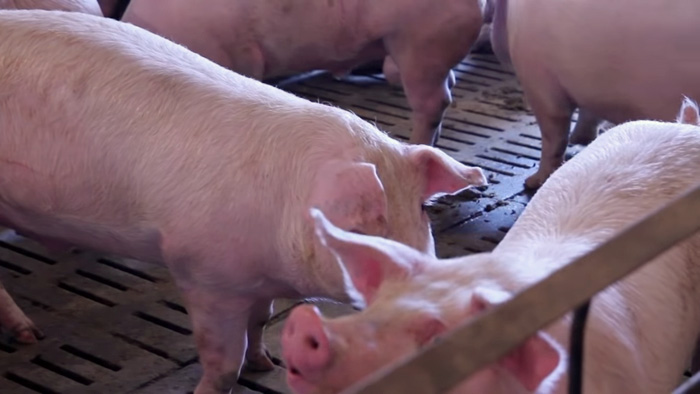Research conducted at Kansas State University has determined the lengths of time and the temperatures at which African Swine Fever virus remains infective in stored feeds.
A report in the journal Transboundary and Emerging Diseases outlines how long ASF virus remains stable in stored feeds.
Swine Health Information Center Associate Director Dr. Megan Niederwerder says the study was conducted at Kansas State University’s high containment biosecurity research institute and assessed the longevity of the ASF viral DNA and the longevity of ASF viral infectivity in complete feed, soybean meal and ground corncob particles stored at 40 degrees Fahrenheit, 68 degrees Fahrenheit and 95 degrees Fahrenheit.
The virus was most stable in soybean meal and least stable in the corncob particles. When we think about risk we think about what matrix provided the most stabilizing environment and, when we look at how long the virus remained infectious in soybean meal, we can think about minimum storage times at these various environmental temperatures for high-risk ingredients such as soybean meal.
When we look at how long the virus survived it was at least 112 days at 40 degrees Fahrenheit, at least 21 days at 68 degrees Fahrenheit and at least seven days at 95 degrees Fahrenheit. Those give us minimum recommendations for storage times after the importation of high-risk feed ingredients.
~ Dr. Megan Niederwerder, Swine Health Information Center
Dr. Niederwerder suggests this work emphasises the need to look at where our feed ingredients are coming from to determine if there is the potential to reduce our risk through feed by either sourcing high risk ingredients locally or by storing these ingredients using these minimum storage recommendations.





